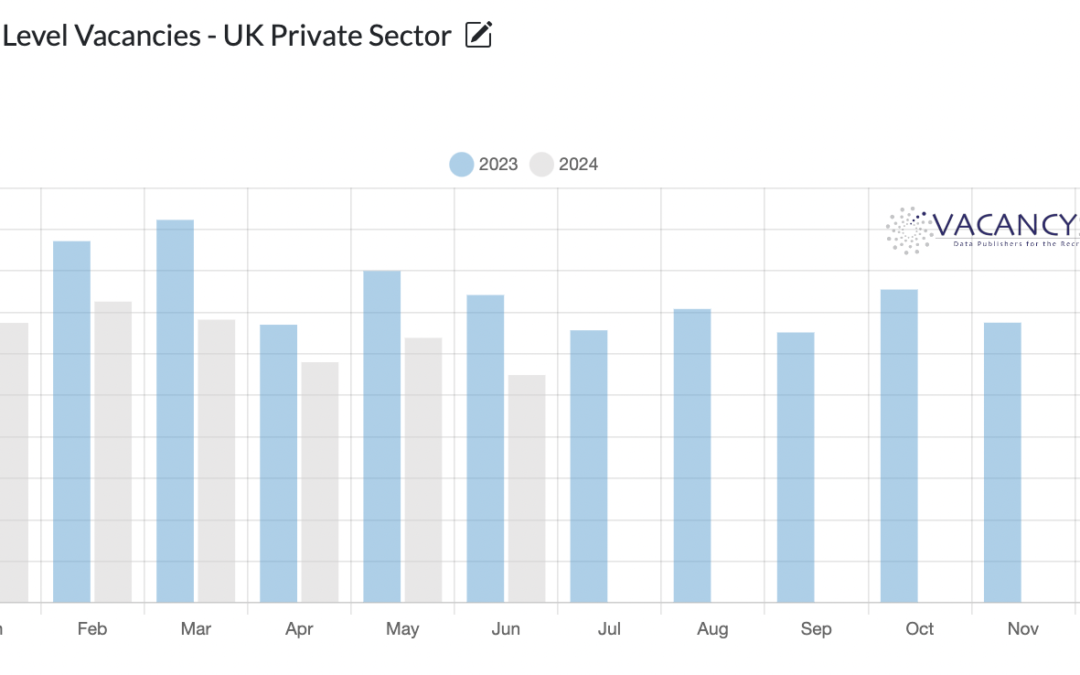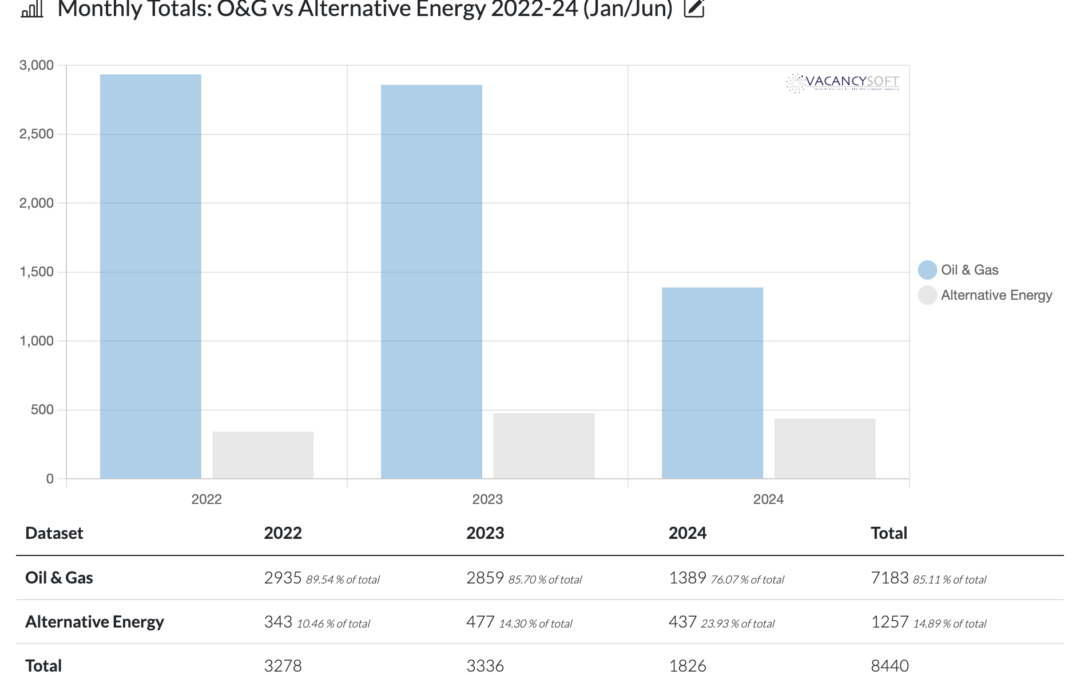
The 2023 year saw a dip across both DACH and BENELUX regions, reflected by the EU data. DACH has kept higher numbers than BENELUX since the start of 2022, but this gap is now shortening whilst still being apparent. So far, the first half 2024 is projected to see lower volumes than the full-year estimate.

As soon as the General Election was called, it became clear that the second half of the year would see a surge in recruitment in House building. Therefore it is not a surprise that vacancies in Real Estate in July hit record levels. Whilst the Conservatives had tried to implement mandatory house building targets under Gove, such was the resistance from their core constituencies, it was soon dropped. For the Labour Party, they have no such constraint, and as a result, have reinstated the target, and increased it.

The post-election bounce is real. When the vacancy volumes are analyzed by weekly totals, it is in July that the record total for the year has been posted. While this can be a function of the immediate post-election bounce, the wider economic news for the UK is broadly encouraging. The British Economy in Q1 grew by 0.7% which was the strongest expansion seen in over two years, and as a result, has beaten all forecasts. Insofar that Q2 is likely to be flat, that can be attributed to the dampening effect of the general election, hence the fact there was a jump in vacancies in July is a good sign.

With the Labour Party now in-situ, changes are being proposed to employment law which have the potential to be transformative to the UK, where the minimum wage is a key area being scrutinised. The proposal to scrap the tiered structure of the minimum wage, which means that there will be no difference in treatment, between those aged 16 year olds or those over 21 has the potential to cause a significant impact in the job market in terms of entry level roles. The question is, what are the likely second order consequences?

In one stroke of a ministerial pen, the drilling licenses which Sunak had committed to, were cancelled. Miliband for a long time has been an advocate of clean energy and has committed to decarbonizing the national grid, in full, by 2030. At the same time, in a sign this Government are prepared to tackle the NIMBYs head on, previous restrictions regarding on shore wind farms are to be removed and investment into solar power infrastructure is to be trebled.







